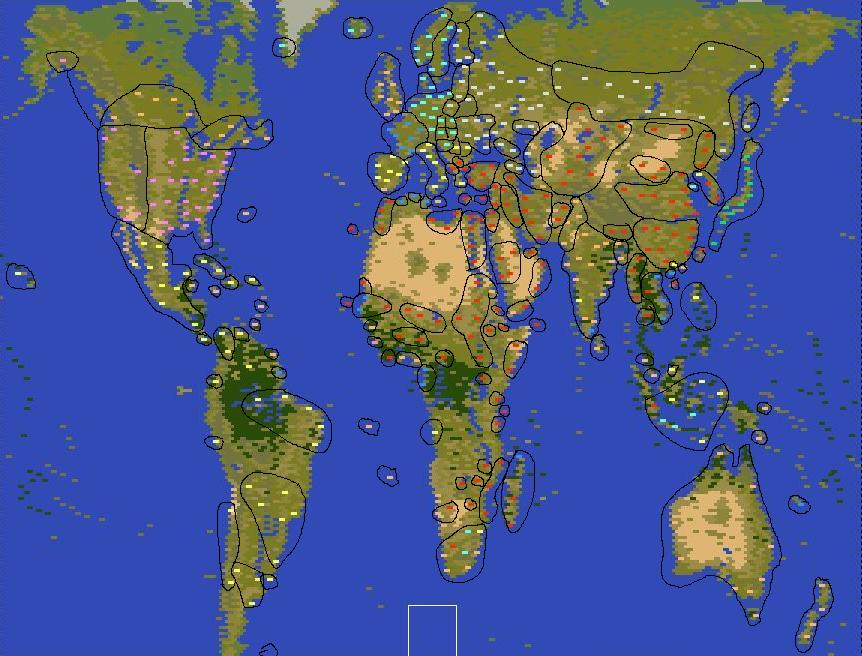Northerner
Warlord
- Joined
- Mar 8, 2017
- Messages
- 264
Prof. Garfield, I'm going to admit that I don't understand your system well enough to trust myself to go with it. Are you and economist?
Possibly just a general statistician.Prof. Garfield, I'm going to admit that I don't understand your system well enough to trust myself to go with it. Are you and economist?

I think the class has revolted, Professor.I got the MA in economics about a year ago, but decided against getting the PhD.
I didn't realize my proposal was more complicated than keeping track of where exclusion zones are and the number of units in them and trying to use house rules to limit the scope of wars. My idea was that the unit killed penalty would make everyone think twice about escalating a war, and that this would achieve (at least some of the time) the limited war idea within the game instead of being directly imposed from outside. Building food caravans for points give people something to do other than build troops after they max out commodity deliveries.
Core cities would make Europe more important (as it was at the time), and mitigate the advantage of starting with a large empire.
The system can be made simpler. Give everyone 10 core cities at the start of the game, only count food caravan deliveries for points from those cities, and eliminate the "rebellious city" mechanic. Also, eliminate wanting to hold your original core cities more than getting others. Then we have
Final score = (core cities/10)*food caravan deliveries - dead troops
Or, how about this:
Final Score = (10*number of cities + food caravan deliveries - dead troops)/number of starting cities
No core cities. At the end of the game, cities are worth 10 points, you get extra points for food caravan deliveries, and you divide your score by the number of starting cities to compensate for the size of a starting empire. Or, we could do
Final score = ((10*cities+food caravan deliveries)/number of starting cities) - dead troops
(This means that countries that start out with large empires don't have a reduced dead troop penalty)
If this kind of scoring system really is that difficult to understand or keep track of, I'm happy to go along with the system where placing extra units in an exclusion zone is "breaking the rules" instead of "provocative" or "frowned upon by the international community."



I think the class has revolted, Professor.
PROPOSED HOUSE RULES:
1 - War must be declared the turn before any combat takes place (For both limited and unlimited war. The defender strikes first. The attacker can move units into position the turn they declare war but cannot fire any shots)
2 - If both attacker and defender agree to a limited war there will be a five square exclusion zone around the territory outside of which any units are considered neutral.
3 - The defender can declare unlimited warfare the turn that war is declared on them if they choose to
4 - If engaged in a state of limited war the same one turn warning applies to either party to escalate to unlimited warfare (except for in the case of point 3 above)
5 - Trade embargos must be respected (IE You may not send Trade to any nation that has declared an embargo on you)
I think these house rules are pretty straight forward and are not open to misinterpretation, They will give the players options, both to limit wars if convenient to their grand plans and leaves room for diplomacy. If you guys agree I will crack on and finish the territory map (based loosely on modern countries and regions). We currently have 3 votes for (presuming Patine and Voltar still agree). If Northerner could please cast his vote and Pat and Voltar can confirm whether they still prefer the territories option (as amended above) we can get on with the game.
But, but... the Falkenhayn Plan...PROPOSED HOUSE RULES:
1 - War must be declared the turn before any combat takes place (For both limited and unlimited war. The defender strikes first. The attacker can move units into position the turn they declare war but cannot fire any shots)

Though they weren't a major power of the period, Bulgaria's aerial bombardment of a Turkish fort (only the second aerial bombardment from a heavier-than-air aircraft in military history) that started actual aggression in the First Balkan War (though tensions were definitely building and unofficial preparations were being made) was quite out of the blue (much more literally than was typical of the day), but it is a pedantically-pointed-out corner case. The rules seem reasonable. I'll have my first turn put up by Friday, preferably, tomorrow, MST.This system does preclude the use of sneak attacks, but in this period they were not the norm. Vast armies require time to mobilize and deploy, giving their opponents time to prepare. It wasn't really until Pearl Harbour (unless anyone can think of an earlier example) that a real bolt out of the blue attack occurred.
